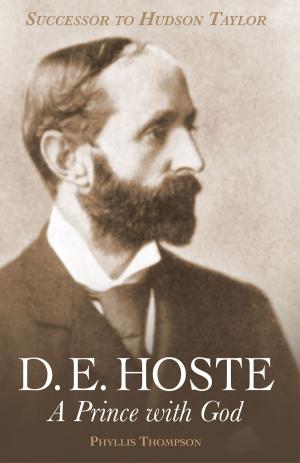Anthony Norris Groves: Saint and Pioneer
Nonfiction, Religion & Spirituality, Christianity, Missions & Missionary Work, Biography & Memoir, Religious| Author: | G. H. Lang | ISBN: | 9781937428273 |
| Publisher: | Kingsley Press | Publication: | October 11, 2012 |
| Imprint: | Language: | English |
| Author: | G. H. Lang |
| ISBN: | 9781937428273 |
| Publisher: | Kingsley Press |
| Publication: | October 11, 2012 |
| Imprint: | |
| Language: | English |
Although his name is little known in Christian cirlces today, Anthony Norris Groves (1795-1853) was, according to the writer of this book, one of the most influential men of the nineteenth century. He was what might be termed a spiritual pioneer, forging a path through unfamiliar territory in order that others might follow. One of those who followed him was George Müller, known to the world as one who in his lifetime cared for over ten thousand orphans without any appeal for human aid, instead trusting God alone to provide for the daily needs of this large enterprise. In 1825 Groves wrote a booklet called Christian Devotedness in which he encouraged fellow believers and especially Christian workers to take literally Jesus’ command not to lay up treasures on earth, but rather to give away their savings and possessions toward the spread of the gospel and to embark on a life of faith in God alone for the necessaries of life. Groves himself took this step of faith: he gave away his fortune, left his lucrative dental practice in England, and went to Baghdad to establish the first Protestant mission to Arabic-speaking Muslims. His going was not in connection with any church denomination or missionary society, as he sought to rely on God alone for needed finances. He later went to India also. His approach to missions was to simplify the task of churches and missions by returning to the methods of Christ and His apostles, and to help indigenous converts form their own churches without dependence on foreign support. His ideas were considered radical at the time but later became widely accepted in evangelical circles. Groves was a leading figure in the early days of what Robert Govett would later call the mightiest movement of the Spirit of God since Pentecost—a movement that became known simply as the Brethren. In this book G. H. Lang combines a study of the life and influence of Anthony Norris Groves with a survey of the original principles and practices of the Brethren movement.
Although his name is little known in Christian cirlces today, Anthony Norris Groves (1795-1853) was, according to the writer of this book, one of the most influential men of the nineteenth century. He was what might be termed a spiritual pioneer, forging a path through unfamiliar territory in order that others might follow. One of those who followed him was George Müller, known to the world as one who in his lifetime cared for over ten thousand orphans without any appeal for human aid, instead trusting God alone to provide for the daily needs of this large enterprise. In 1825 Groves wrote a booklet called Christian Devotedness in which he encouraged fellow believers and especially Christian workers to take literally Jesus’ command not to lay up treasures on earth, but rather to give away their savings and possessions toward the spread of the gospel and to embark on a life of faith in God alone for the necessaries of life. Groves himself took this step of faith: he gave away his fortune, left his lucrative dental practice in England, and went to Baghdad to establish the first Protestant mission to Arabic-speaking Muslims. His going was not in connection with any church denomination or missionary society, as he sought to rely on God alone for needed finances. He later went to India also. His approach to missions was to simplify the task of churches and missions by returning to the methods of Christ and His apostles, and to help indigenous converts form their own churches without dependence on foreign support. His ideas were considered radical at the time but later became widely accepted in evangelical circles. Groves was a leading figure in the early days of what Robert Govett would later call the mightiest movement of the Spirit of God since Pentecost—a movement that became known simply as the Brethren. In this book G. H. Lang combines a study of the life and influence of Anthony Norris Groves with a survey of the original principles and practices of the Brethren movement.















